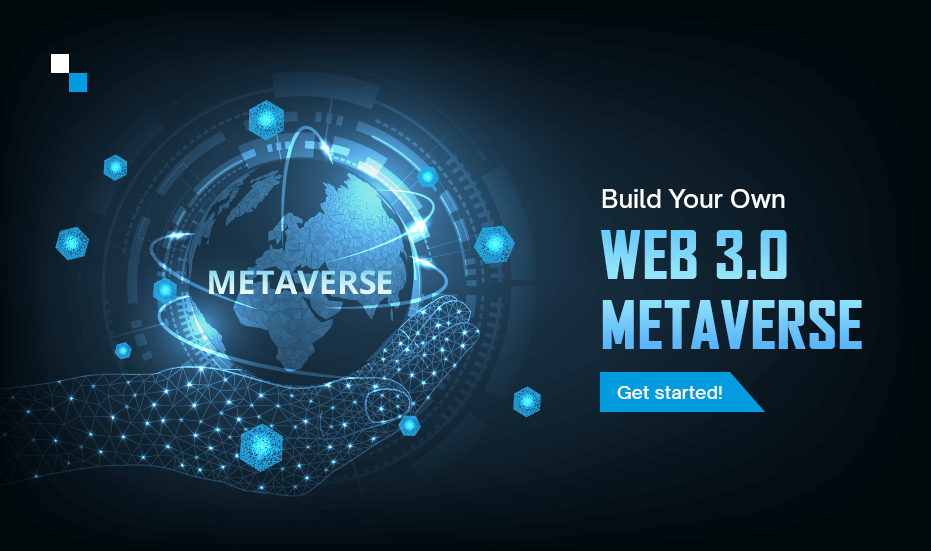Introduction: The digital economy has become a driving force impacting the way we live, work, and interact in the ever-changing landscape of technology. As we approach the dawn of a new era, the rise of Web 3.0 and the Metaverse promises a paradigm shift that will go beyond our current knowledge of the digital universe. In this essay, we will look at the digital economy, the significance of Web 3.0, and the Metaverse’s disruptive potential.
The Digital Economy Unveiled
The digital economy encompasses all economic activities that leverage digital technologies. From e-commerce and digital marketing to online banking and virtual communication, our world is increasingly reliant on digital interactions. The digital economy has transcended borders, creating a global network that connects businesses and individuals in unprecedented ways.
Web 3.0: The Evolution of the Internet
Web 3.0 represents the next phase in the evolution of the internet. Unlike its predecessors, Web 1.0 (the static web) and Web 2.0 (the social web), Web 3.0 introduces a new era characterized by a decentralized, intelligent, and user-centric internet. At its core, Web 3.0 relies on blockchain technology, enabling trustless transactions and decentralized applications (DApps). This shift towards decentralization aims to empower users, protect privacy, and foster a more open and collaborative digital environment.
The Role of Web 3.0 in the Digital Economy
Web 3.0 holds the potential to revolutionize the digital economy by addressing key challenges such as data privacy, security, and user control. With blockchain-based smart contracts, transactions become transparent and tamper-proof, reducing the risk of fraud and enhancing trust in digital interactions. Decentralized finance (DeFi) platforms, powered by Web 3.0, are disrupting traditional financial systems, providing inclusive and accessible financial services to a global audience.
Moreover, Web 3.0 promotes the concept of the “user as the owner.” Users gain control over their data, deciding how and when to share it. This shift not only protects individual privacy but also fosters a more equitable digital economy where users are not mere commodities but active participants in the online ecosystem.
The Metaverse: Beyond Virtual Reality
The Metaverse is a collective virtual shared space that exists beyond our physical reality, combining aspects of social media, online gaming, augmented reality, and virtual reality. While it may sound like science fiction, the Metaverse is quickly becoming a tangible concept with implications for various industries, including entertainment, education, and commerce.
In the Metaverse, users interact with digital representations of themselves and others, blurring the lines between the physical and virtual worlds. Companies are already exploring the potential of the Metaverse for virtual conferences, immersive shopping experiences, and collaborative work environments. As the Metaverse continues to evolve, it could redefine how we connect, collaborate, and consume information in the digital age.
What Lies Beyond: The Future of the Digital Landscape
As we look to the future, the convergence of Web 3.0 and the Metaverse holds the promise of a more decentralized, user-centric, and immersive digital experience. The combination of blockchain technology, artificial intelligence, and virtual environments could reshape industries and redefine the way we conduct business and socialize.
The integration of these technologies will likely lead to new business models, innovative applications, and unforeseen opportunities. However, it also raises important questions about digital ethics, security, and inclusivity. Striking a balance between technological progress and ethical considerations will be crucial in navigating the uncharted territory of the digital economy fueled by Web 3.0 and the Metaverse.
Conclusion
In conclusion, the digital economy is on the brink of a transformative journey with the emergence of Web 3.0 and the Metaverse. The decentralized nature of Web 3.0 empowers users and enhances trust in digital transactions, while the Metaverse introduces immersive and interconnected virtual experiences. What lies beyond is a landscape of endless possibilities and challenges, where the choices we make today will shape the digital future for generations to come. As we navigate this uncharted territory, it is essential to embrace innovation responsibly, ensuring that the digital economy of tomorrow is not only technologically advanced but also ethically grounded.
What is the Digital Economy, and how does it differ from traditional economies?
Answer: The digital economy refers to economic activities driven by digital technologies, encompassing areas such as e-commerce, online services, and virtual transactions. It differs from traditional economies by leveraging digital interactions, breaking down geographical barriers, and creating a global network of interconnected businesses and individuals.
How does Web 3.0 contribute to a more user-centric internet experience?
Answer: Web 3.0 introduces a decentralized and intelligent internet by leveraging blockchain technology. This shift empowers users with control over their data and introduces trustless transactions through smart contracts. This user-centric approach addresses privacy concerns and fosters a more open and collaborative digital environment.
What role does blockchain play in Web 3.0 and its impact on the digital economy?
Answer: Blockchain is the foundational technology of Web 3.0, enabling decentralized and transparent transactions. With blockchain, Web 3.0 applications, including decentralized finance (DeFi), ensure tamper-proof records and enhance trust in digital interactions. The technology’s role extends beyond finance, influencing various sectors in the digital economy.
How is the Metaverse different from virtual reality, and what potential does it hold for various industries?
Answer: The Metaverse goes beyond virtual reality by creating a collective virtual shared space that combines aspects of social media, online gaming, and augmented reality. It blurs the lines between the physical and virtual worlds. Industries are exploring the Metaverse for virtual conferences, immersive shopping experiences, and collaborative work environments, indicating its potential to revolutionize various sectors.
What ethical considerations arise with the integration of Web 3.0 and the Metaverse, and how can they be addressed?
Answer: The integration of Web 3.0 and the Metaverse raises ethical concerns related to data privacy, security, and inclusivity. Striking a balance between technological progress and ethical considerations is crucial. This involves implementing robust data protection measures, ensuring cybersecurity, and promoting inclusivity to prevent the emergence of digital divides in this evolving digital landscape.


